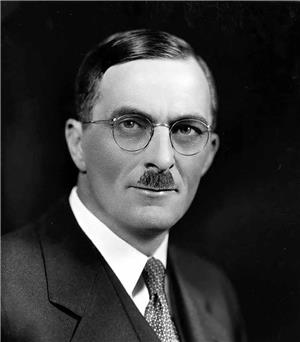On April 8, 1939, Governor Clarence Martin (1887-1955) pardons two Seattle police officers who were convicted of beating an African American man to death. The officers had been sentenced to 20 years in prison. A third officer who was also convicted and sentenced to prison is paroled after serving six months. The officers had reported that Berry Lawson (1911-1938) received his fatal injuries when he fell down some stairs. The criminal conduct came to light after an investigation by the National Association for the Advancement of Colored People (NAACP) and the Urban League.
On March 26, 1938, Officers Patrick J. Whalen (1888-1964), Fred H. Paschal (1894-?), and Walter F. Stevenson (1889-?) went to the Mount Fuji Hotel, 115 Yesler Way to arrest Lenora Johnson (1899-?), a Native American, who had not paid her rent. As they left the hotel, the proprietor asked them to remove an African American man who was asleep in a lobby chair. The officers awakened Berry Lawson and took him to jail. Lawson died later of a cerebral hemorrhage. The officers testified at a coroner's inquest that Lawson had broken away from them and fled down a stairway. The jury found that Lawson "died of a fall downstairs after breaking away from captors" (Argus).
The jury apparently discounted Johnson's version of events. She testified that Lawson was in fine health on his way to the police station. Later, she saw him "all messed up" (Argus).
The NAACP Intervenes
Joseph S. Jackson, vice president of the National Association for the Advancement of Colored People (NAACP), conducted an investigation. He located hairdresser Travis Downs (b. 1909). Downs stated that he had seen the officers beat Lawson. The officers gave Downs $85 and a train ticket to Portland to keep him quiet. Downs left town, then returned to Seattle and contacted the NAACP. Jackson presented the evidence to Prosecuting Attorney B. Gray Warner and Police Chief W. H. Sears. All three officers were charged with Second Degree Murder and dismissed from the police force.
The officers were released on $5,000 bail. Defense attorney Alfred Lundin stated, "These three officers had been sent down there in 1936 to clean up a very tough district. They had done their work well, thus acquiring many enemies. There is an election coming up and that portion of the Negro population that is opposed to law enforcement sees a means of getting these officers."
Lenora Johnson and Travis Downs were kept in custody as material witnesses because they could not post bail. The officers produced James T. Franey, "a downtown drunk" (Argus), who stated that he saw Lawson fall down the stairs. Franey was also jailed as a material witness.
Judgement
The trial opened on May 22, 1938, in King County Superior Court. Fifteen minutes after Downs testified against the former officers, he was arrested by Seattle police for petty larceny. Downs had not repaid a $25 loan and the detectives held the case two months before acting. The prosecuting attorney was concerned for Downs's safety and ordered that he be moved from the city jail to the county jail. After presentation of the prosecution's case, defense attorneys Alfred Lundin, Anthony Savage, and H. Sylvester Garvin rested their case without calling a single witness.
Attorney Garvin told the jury that if they convicted the officers, "there won't be a single police officer in the city of Seattle who will dare to make an arrest -- and why should he?" (Seattle P-I).
On May 28, 1938, the jury of nine women and three men returned a "compromise verdict" (Seattle P-I) of guilty of manslaughter instead of second degree murder. All three men were sentenced to 20 years in the state penitentiary. The defendants were released pending appeals.
Epilogue
In March 1939, the prosecutor and the judge wrote to the governor and stated that they had received new information. According to the defendants, Paschal was not present at all during the beating of Lawson. Stevenson was present, but was unable to act quickly enough to keep Whalen from assaulting the prisoner. Prosecutor Warner stated that Stevenson and Paschal had remained silent, "out of mistaken loyalty to Whalen" (Seattle P-I). On April 8, 1939, Governor Clarence Martin signed the pardons for Stevenson and Paschal.
Stevenson and Paschal appealed their firings from the police department, but lost. Whalen avoided reporting to prison for several months due to several heart attacks (he lived another 25 years). Whalen finally served six months in custody before being paroled on December 29, 1939.

